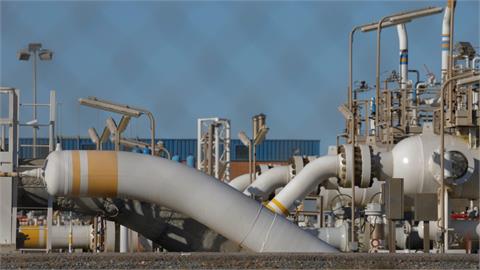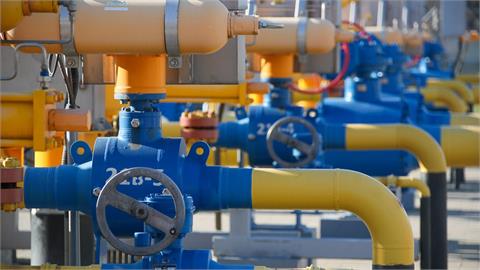The construction of a new pipeline running parallel to the existing Iraq-Turkey crude oil pipeline is expected to pave the way for greater oil trade through Turkey's southeastern port of Ceyhan in the Mediterranean Sea.
Last week saw a host of important meetings between Turkey and Iraq with Turkey's Energy and Natural Resources Minister Fatih Donmez's visit to Baghdad where he met with Iraq's Prime Minister Adil Abdul-Mahdi, Oil Minister Thamer Ghadhban and Electricity Minister Luay al-Khateeb.
During the meetings, among the variety of energy projects discussed was the extension to the existing Iraq-Turkey Crude Oil Pipeline, also known as the Kirkuk-Ceyhan pipeline. Ghadhban conveyed Iraqi Oil Ministry's intention to construct a new oil pipeline to carry Iraq's crude oil from Kirkuk to the Turkish border on the old route, with the Iraqi government's approval.
Donmez responded positively to this proposal and said the new parallel pipeline, which would stretch almost 1,000 kilometers (621 miles) from Kirkuk to Ceyhan, would be in a position to carry oil resources not only from the north of Iraq but also from other regions.
"They [Iraq officials] spoke about new projects and we welcome them," Donmez said.
Oguzhan Akyener, president of Turkey Energy Strategies & Politics Research Center, said the Iraq-Turkey Crude Oil pipeline was initially constructed to carry Kirkuk oil to global markets through the Ceyhan terminal, with a total capacity of 1.2 million barrels of oil per day.
"However the Iraqi part of the pipeline has been damaged due to attacks over time, and in the end became completely unusable after Daesh attacks. Therefore, the KRG [Kurdish Regional Government] started to carry the oil produced from the areas under its control firstly through oil tankers and later via pipeline that they reconstructed, and which is linked to the Kirkuk-Ceyhan pipeline on the Iraq-Turkey border with a daily capacity of 1 million barrels of oil," he explained.
According to Akyener, the oil trade today through the semi-autonomous KRG-controlled territory continues despite fluctuating trade volumes from time to time, but trade via Iraq's central government in Baghdad has almost stopped. Currently, oil exports average between 550 and 600 thousand barrels per day.
- Proposed pipeline to enhance Ceyhan's importance in global market
"The reconstruction of the Iraqi part of the Kirkuk-Ceyhan pipeline is important for the restart of greater trade and for increasing Ceyhan's importance in oil markets worldwide," Akyener said.
The latest data from Turkey's energy watchdog's, the Energy Market Regulatory Authority (EMRA), shows that Turkey imported the most crude oil from Iraq at 898,915 tonnes in June. This amount gradually increased since March when imports stood at 465,338 tonnes and rose to 677,274 tonnes in April, and further enlarged to 757,448 tonnes in May.
Akyener underlined that with a large number of oil fields under the control of Iraq's central government, and with the development of oil fields to the north of the country along with the new pipeline, the central government would be able to avail of greater production opportunities.
Iraq, currently producing nearly 4.5 million barrels of oil per day, aims to increase this volume to 6.2 million barrels of oil per day in 2020 and 9 million barrels of oil per day by 2023, effectively doubling the current production rate.
However, Akyener added that even though the route of the proposed pipeline is obvious, construction will take two to three years to complete taking into account security and financing issues.
"From a security perspective, the fact that the planned pipeline will be linked to the central Iraqi oil pipeline system as before, signals to us that Iraq prefers Turkey as a second exit door after Basra [Iraq's main port] for its oil exports," Akyener said.
Iraq will also be able to transit the maximum volumes allowed from oil produced in the southern fields through the proposed pipeline should tensions in the Strait of Hormuz, one of the world's most strategic chokepoints for energy transportation, curtail oil transmission, Akyener said.
Nearly 90% of Iraq’s crude oil production comes from onshore oil fields in the southern part of the country, while the remaining 10% comes from oil fields in the north of the country.
- Tensions in the Strait of Hormuz
In June, tensions between the U.S. and Iran escalated further after two oil tankers were attacked at the Strait.
Since then, the escalated tensions raised concerns over a potential oil supply cut from the region to the world markets.
About 20 million barrels of oil transit each day through the Strait; equivalent to about 20% of the world's supply.
(Anadolu Agency)



